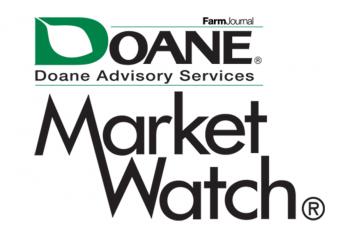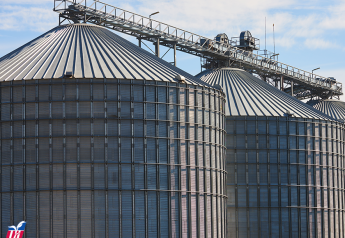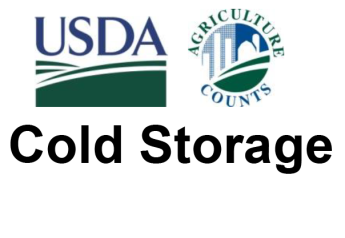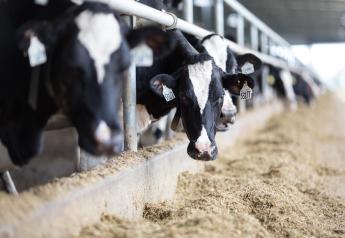Evening Report: April 13, 2022

Check our advice monitor on ProFarmer.com for updates to our marketing plan.
Producer Price Index has largest monthly gain since December 2009... The U.S. producer price index (PPI) increased 1.4% from February, the largest monthly gain since the government revamped the series in December 2009, after rising 0.9% in February, according to the Bureau of Labor Statistics. The PPI jumped 11.2% from year-ago, the largest year-on-year increase since November 2010, compared to a 10.3% increase in February. Economists polled by Reuters expected the PPI to rise 1.1% for the month and 10.6% versus year-ago. In the 12 months through March, the core PPI soared 7.0% after increasing 6.7% in February. The core monthly PPI rose 0.9% from February.
The index for final demand goods rose 2.3% in March, the same as in February. The index for final demand services increased 0.9%. Over half of the broad-based advance in March can be traced to a 5.7% jump in prices for energy. Diesel fuel prices jumped 20.4%. Food prices climbed 2.4%, though the cost of beef and veal fell 7.3%. The indexes for gasoline, fresh and dry vegetables, jet fuel, iron and steel scrap, and electric power also increased.
Higher producer prices signal higher future food costs... March’s PPI showed food costs climbed 2.4% from a month earlier, the largest increase since May. The jump was driven by higher grain, vegetable, cooking oil and pork prices. Economists explain the consumer price index will likely show these food price increases in the future. From a year earlier, food prices advanced 16.2%, the largest increase in annual records back to 2010, PPI data showed. One economist explained that consumer prices for commodity-based food categories lag the producer price by one to two months. Consumer food prices have been increasing for months. However, economists note supply shortages will likely mean higher food prices will continue into the foreseeable future.
Bank of Canada hikes interest rates by 50 basis points... The Bank of Canada became the first central bank in the Group of Seven to approve a 50-basis point interest rate increase since the pandemic. The bank’s largest rate hike in 22 years raises Canada’s overnight benchmark rate to 1%. According to a Bloomberg survey, 25 of 30 economists expected the 50-basis point hike, with the markets pricing in a 70% chance of that size of a rate increase. The bank expects rates to return to the “neutral range” of 2% and 3%, and is prepared to move “forcefully” if needed. The bank will also shrink its balance sheet by stopping government bonds purchases later this month.
Ukraine to export 17 MMT of corn in 2021-22... Ukraine’s corn exports could decrease by 6.1 MMT from last year to 17 MMT for the 2021-22 marketing year, according to a senior Ukraine agriculture official. Ukraine corn prices with April-May delivery stood at $240 to $250 per MT DAP (Delivered at Place) on the Polish border, down by as much as $15 an MT from a week earlier, according to APK-Inform, a Black Sea consultancy. The drop in corn prices was due to limited demand and large stocks. The country’s corn stocks totaled about 13 MMT at the end of March, with only 300,000 MT exported during the month.
Deputy Agriculture Minister Roman Rusakov said sunflower oil exports could total 3.4 MMT for the 2021-22 marketing year, down from 5.3 MMT from the previous year. Before Russia’s invasion, Ukraine’s sunflower oil exports were predicted to reach 6.6 MMT.
Taras Vysotskiy, another Ukrainian deputy agriculture minister, said Ukraine could export 2 MMT of wheat during the remainder of 2021-22 that runs through June.
India suspends cotton import duties... India’s government announced it will halt cotton import duties until Sept. 30 due to record domestic prices. The total import tax was 11%, according to industry sources. The move will help textile mills import cheaper cotton from the U.S., Australia, Brazil and African countries. The country could import 2.5 million bales of cotton this year. India is expected to produce 33.51 million bales in the current year, down 1.79 million bales from last year.
Avian influenza cases outpacing 2014-15 outbreak... The number of highly pathogenic avian influenza (HPAI) cases in the U.S. are outpacing the 2014-15 outbreak. However, the higher numbers might be attributed to detection and reporting protocol improvements. American Farm Bureau Federation economists found as of April 7, there have been more than 600 detections of HPAI in wild birds across 31 states, and 158 detections in commercial and backyard flocks across 25 states. The Mississippi flyway had 49% of the commercial flock detections, while 36% of the commercial detections were in the Central flyway and the Atlantic flyway had 15% of the cases. The Pacific flyway has not had a reported case. The 2014-15 outbreak prompted revisions to the National HPAI Surveillance Plan, which has led to heightened annual surveillance plans, providing poultry producers earlier notice to increase their biosecurity measures.
Mexican truckers continue blocking Texas border crossing... Since Monday, Mexican truck drivers have blocked the Pharr-Reynosa International Bridge in protest of Texas Gov. Greg Abbott directing Texas Department of Public Safety troopers last week to pull over and inspect trucks coming into the state from Mexico. The bridge is the largest land port for produce entering the United States. An estimated 3,000 trucks would cross the Pharr border bridge on a typical day, according to the National Freight Transportation Chamber. Unusually long backups — some lasting 12 hours or longer — have also been reported elsewhere along Texas’ roughly 1,200-mile border in the early rollout of an initiative that Abbott says is needed to curb human trafficking and the flow of drugs. U.S. Customs and Border Protection officials confirmed another blockade at the Mexican customs facility at the Santa Teresa port of entry in southern New Mexico. Experts warn U.S. grocery shoppers could notice shortages or higher prices due to the blockage.
March tractor sales drop... In March, a total of 24,715 tractors were sold in the U.S., compared to 31,276 sold during the month last year, a 21% decrease, according to the Association of Equipment Manufacturer’s monthly “Flash Report.” Compared to a year ago, two-wheel-drive under 40 HP tractors were down 26%, 40 & under 100 HP were down 14%, two-wheel-drive 100+ HP were up 7%, four-wheel-drive tractors were down 2% and combine sales were down 10% to 343. For the year, two-wheel-drive under 40 HP are down 11% from last year, 40 & under 100 HP are down 4%, two-wheel-drive 100+ HP are up 13%, 4-wheel-drive tractors are down 1% and combine sales are down 19%.
Yellen warns China on Russian relations... U.S. Treasury Secretary Janet Yellen warned China that in the future, it would be tough to separate economic issues from national interests, including national security. She hoped the U.S. and China could avoid a “bipolar” split between the countries. She noted the world’s attitude toward China and its economic integration could be affected by Beijing’s reaction to Russia’s invasion of Ukraine. Yellen also warned nations sitting on the fence over the international effort to punish Russia or any actions to undermine sanctions on the country could be penalized by the U.S. and its allies.
Yellen to convene food security meeting... Yellen will discuss global food prices and supply solutions during next week’s Spring Meetings of the International Monetary Fund and World Bank. Participants will include ministers representing the G-7 and G-20, International Monetary Fund Managing Director Kristalina Georgieva and World Bank President David Malpass. Yellen is looking to assist the countries that spend the largest share of their income on food. She explained that development banks need to make longer-term investments to correct vulnerabilities of underlying food systems. The banks provide money to increase domestic food production, strengthen safety nets and finance trade. However, higher commodity and food prices increase inflation and threaten food and energy security.
Four meatpacker CEOs agree to Congressional hearing... CEOs of meatpackers Cargill, Tyson Foods, JBS and National Beef Packing have agreed to testify at a Congressional hearing to discuss cattle markets and price increases for consumers, according to House Agriculture Committee Chairman David Scott (D-Ga.). He also noted there would be a rancher panel to discuss the impact of meatpacking consolidation on their businesses. The House Ag Committee had requested the CEOs of the top five meatpackers to appear before the panel on April 27, Pro Farmer has learned. Meanwhile, some lawmakers are pushing for a general counsel at USDA to investigate meat industry competition.






